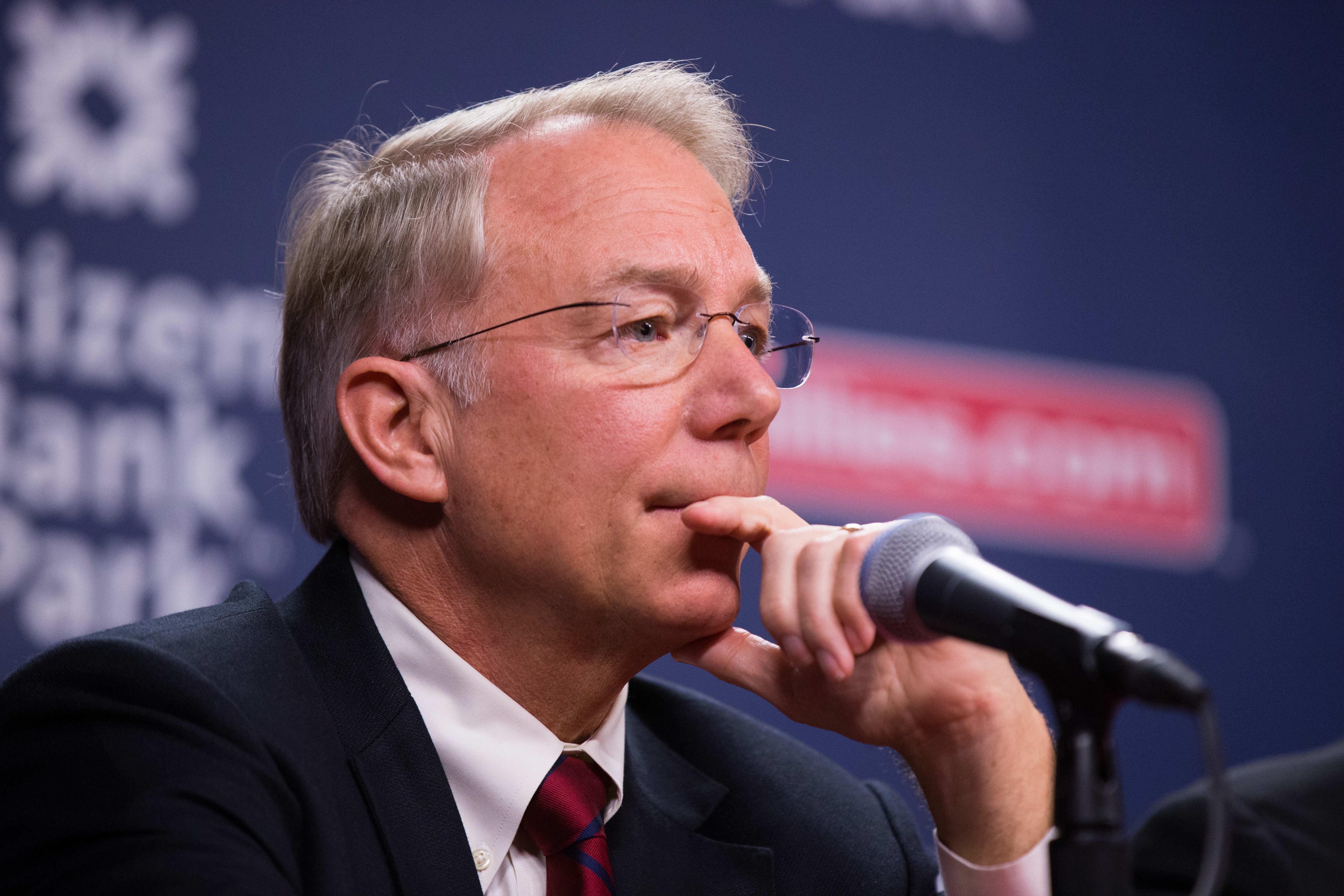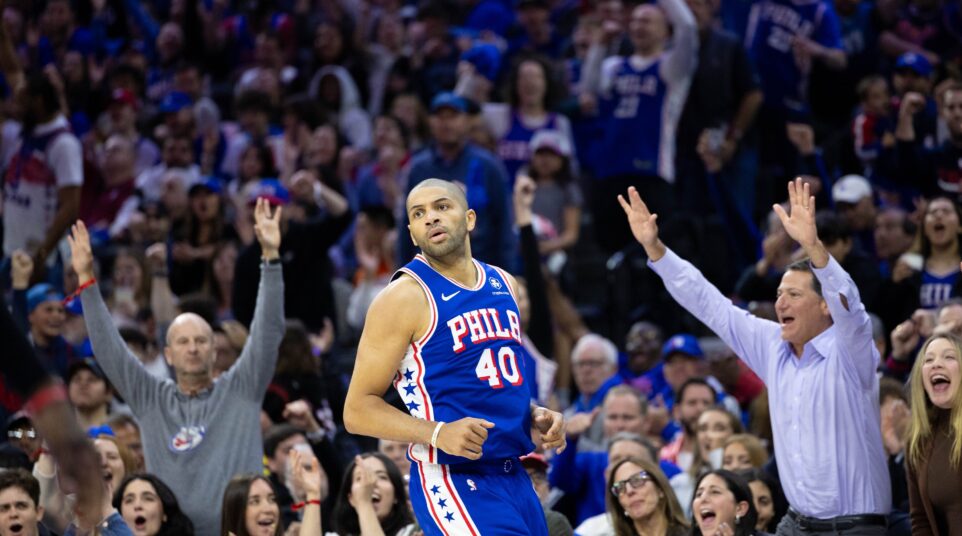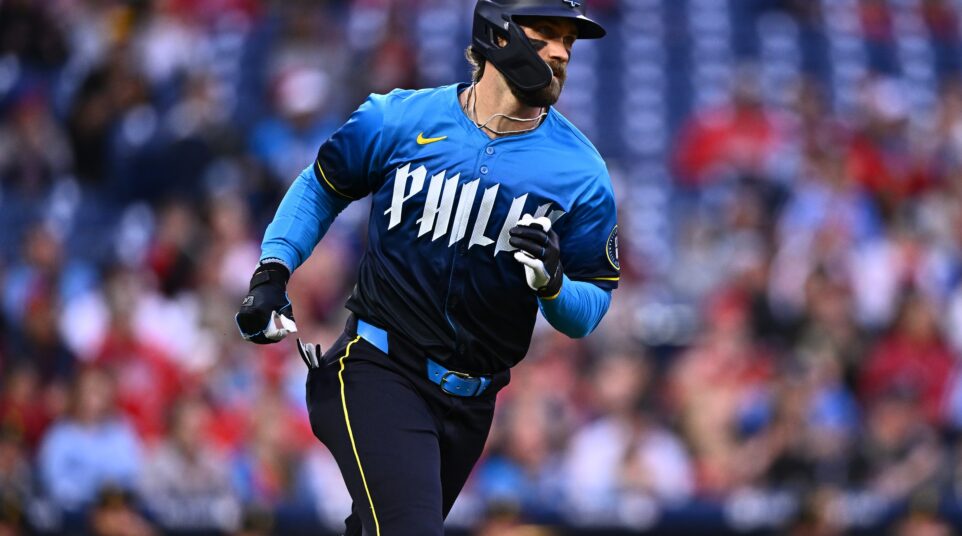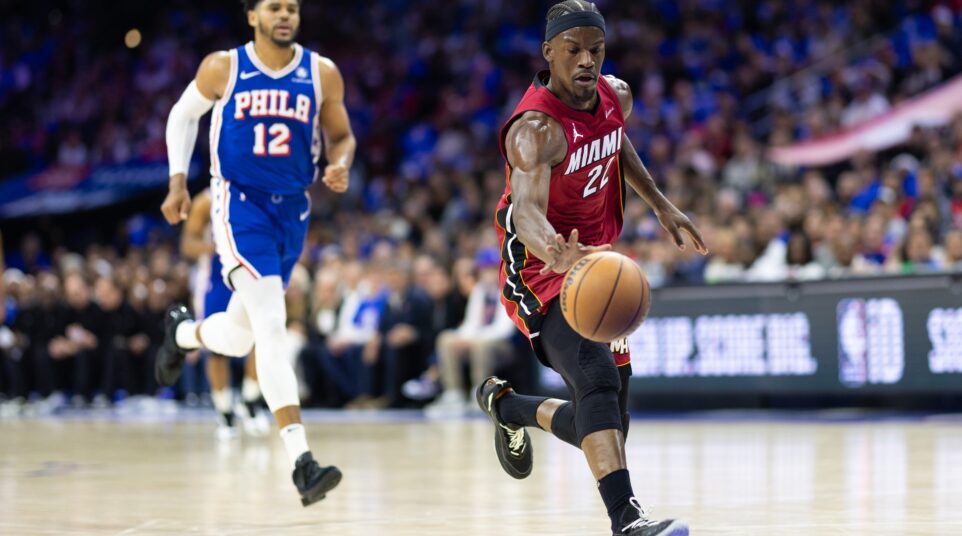
Some Takeaways From the Andy MacPhail Press Conference
Phillies President of Baseball Operations Andy MacPhail met with reporters this afternoon at Citizens Bank Park to give what I would term as a refreshingly honest assessment of his team and some clues about its direction moving forward ahead of a crucial offseason. I just finished up watching the presser in its entirety and rather do a traditional story here, I think it’s best to share some overall impressions and takeaways from the session.
1. For Starters
The Phillies lived and died by their starting pitching this season, a fact that MacPhail quickly alluded to when discussing his team’s struggles down the stretch. He noted that Phillies starters turned in Major League Baseball’s second-highest quality start percentage through August 18 (58%), but when their performance regressed, “that’s when the spiral started.” MacPhail, in lamenting the difficulty of assessing the team’s progress this season, said, “We are the most inconsistent team I have ever been associated with.” Specifically, he mentioned the unsustained summer surges of Zach Eflin and Vince Velasquez. It’s also worth noting that MacPhail said about his team’s pitching, “I wish we’d get a little more left-handed.”
My takeaway?
I think MacPhail knows that players like Velasquez, Eflin, and Nick Pivetta have considerable upside, but to return all three would be too great a risk, one that could ultimately sink the team in 2019. I expect this rotation to have different look in at least one or two spots next season.
2. “Dicey” Decisions
Later during the press conference, MacPhail also cited the inconsistency of third baseman Maikel Franco. I found his assessment to be revealing. “Franco hit .330 in July and then backed it up with .240 in August,” he said. “I mean, the other team, you know, maybe they’ll find the key, or maybe it is a function of just experience and learning yourself and what you have to do to stay focused and energetic the entire season.”
Now read that quote again and tell me if it sounds like Franco will be back next season?
MacPhail also named Odubel Herrera and Hector Neris as inconsistent performers. Those observations, paired with his comments about Eflin and Velasquez, really get to the crux of the Phillies’ dilemma this offseason. I think most observers of this team agree that several changes are coming both via free agency and the trade market. The Phillies must adeptly gauge what such inconsistency and performance variance from several of their players means in 2019 and beyond. Which of these players just are not good enough to sustain quality play and which are still evolving and moving in an upward trajectory toward their projected ceilings? This front office has several very interesting and difficult decisions awaiting them in the coming weeks and months.
3. Downplaying Analytics
It was absolutely no surprise that WIP’s Howard Eskin was the one to ask MacPhail about the team’s usage of analytics. Eskin spent most of the summer decrying (I thought rightfully so, at times) what he felt was the team’s over-reliance on data. MacPhail seemed to be aware of his critiques by saying, “I fault myself because I haven’t, particularly with you, done a good enough trying to make you understand analytics.” I don’t if he meant that as a shot at Eskin. It didn’t seem like it as I watched, but it reads that way.
MacPhail went on to say, “It’s replacing the subjective with the objective.” He then provided a basic example about how a coach 10 years ago might urge a pitcher to throw a fastball up in the zone because a hitter struggles with such pitches, but now such a suggestion can be backed up with numbers. I thought he tried to downplay the organization’s recent prioritization of analytics by saying, “There is a narrative about our team that we are analytically driven. Yeah, we have a much bigger analytic department than we did three years ago because, essentially, we went from zero to what is now probably industry standard.”
He supported his assertion by noting the organization added a minor league team, coaches, and both international and domestic scouts. While that’s true, the recent departure of former director of player development Joe Jordan and multiple minor league hitting instructors suggests a shift towards more data-driven evaluations and coaching methods. And, frankly, just watch the games. MacPhail can say it’s simply about transmitting data down to the field, but there wasn’t much traditional about the 2018 Phillies. In fact, if Gabe Kapler’s in-game decisions weren’t so heavily driven by analytics, I would think the team would have gone to great lengths throughout the season to squash such a narrative.
4. Speaking of Gabe Kapler
MacPhail sounded generally pleased with Kapler, but I appreciated his candidness about the manager’s tendency to paint every picture with sunshine and rainbows:
“He will get probably an all-expense paid dinner where he’s going to have to listen to me drone on for two hours. I watched this happen to Dusty Baker. If you’re just overly positive, overly positive, you lose credibility with the fans after awhile. You have to find a way to craft a message that is not critical of your players or negative, but acknowledge that there’s some areas, like the rest of us, we have to make some improvements.”
While there was much media and fan speculation regarding Kapler’s job security amid the team’s disastrous September, MacPhail didn’t sound like a guy who seriously considered moving on from the first-year manager:
“I’m a New Yorker, I don’t think anybody can be that positive. I’m like, what’s up? I’ve come to know him a little bit. He’s all in. He is what he is. He’s communicative. If you know anything about Gabe, he makes adjustments. He just went through his rookie year. Here’s a guy that was a 57th round draft choice. He will be the only 57th round draft choice in the history of Major League Baseball that not just got to the Major Leagues, he spent 12 years there. He knows how to make adjustments. He’s gonna have to make some adjustments going forward, just like the rest of us. He’s going to have to stay open-minded.”
5. Money Talks
The headline-grabber will probably be MacPhail’s refusal to blatantly acknowledge the Phillies’ desire to spend this offseason. I saw some early Twitter takes after his comments deeming the Phillies as “cheap” and “a joke,” but I actually thought it was pretty obvious that the team will look to spend aggressively on the right players. MacPhail acknowledged the team’s willingness to reach the previous significant payrolls that were common earlier in the decade. I don’t think it was ever realistic to expect the Phillies to add both Manny Machado and Bryce Harper this offseason, but MacPhail did seem to throw some water on that possibility when he made reference to the quality of next offseason’s free agent class and stated the importance of remaining financially flexible in coming seasons. People may not want to hear that, but he’s not wrong for saying it. Ironically, one of my favorite parts of the session came when he cautioned liberal free agency spending. Essentially, he debunked Matt Klentak’s disingenuous brag from yesterday about the Phillies having the fourth-best free agent class a year ago:
“We spent $169 million on free agents from ’17 to ’18. I think Matt alluded to this yesterday. That’s the second most of anybody. If you calculate how good your free agent class, and used WAR as the measuring stick, we had the fourth-most productive class, but spent the second most. Not exactly the most efficient use of your dough.”
Again, maybe that’s not exactly what people want to hear, and I get it, but I still think they’re going to make a strong push to add game-changing talent this offseason.
6. Some Other Quick Notes
- MacPhail characterized John Middleton as “crabby” after the Phillies’ brutal finish.
- He was complimentary of Klentak, specifically noting that he’s “not afraid,” which is admirable. Still, I found it interesting that MacPhail refused to answer a question about Klentak’s contract status.
- It’s both encouraging and telling that he said getting the defense right is a priority.
- MacPhail seemed pleased with the team’s spike in attendance and the 26% increase in television ratings.





